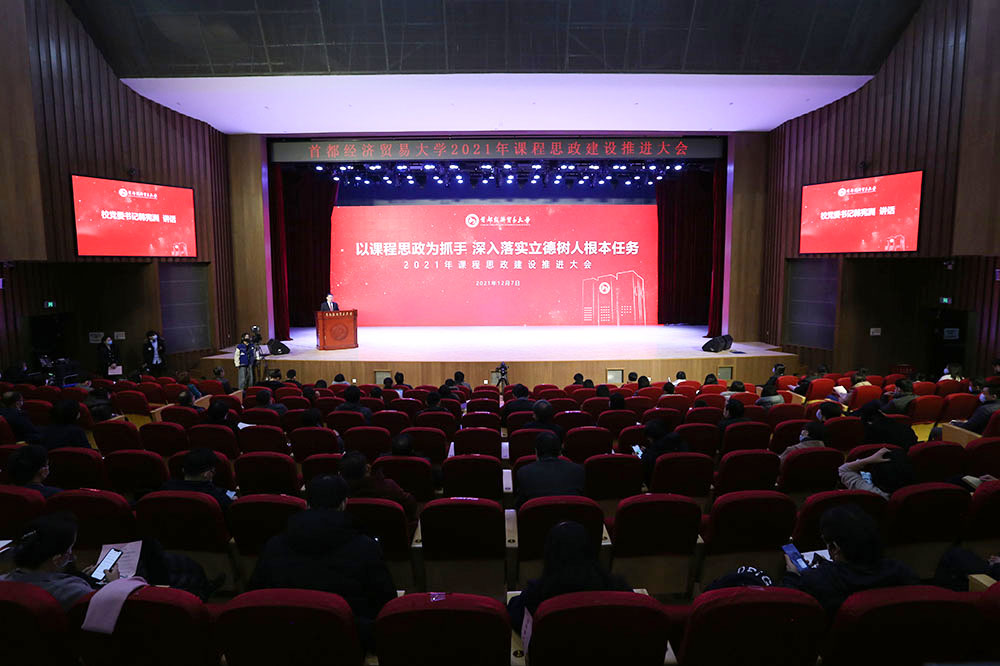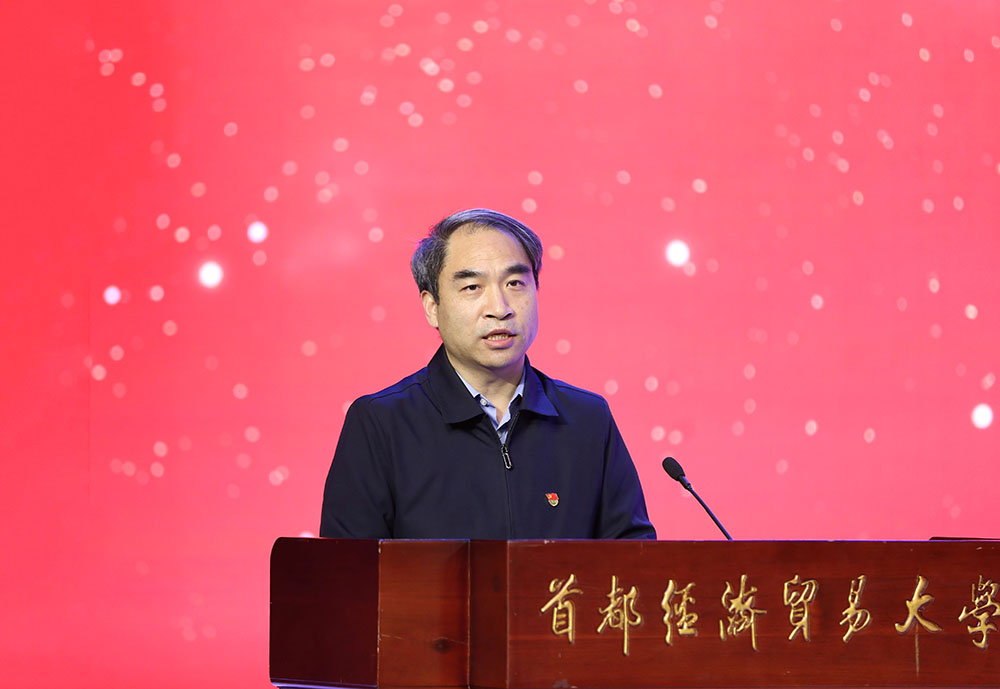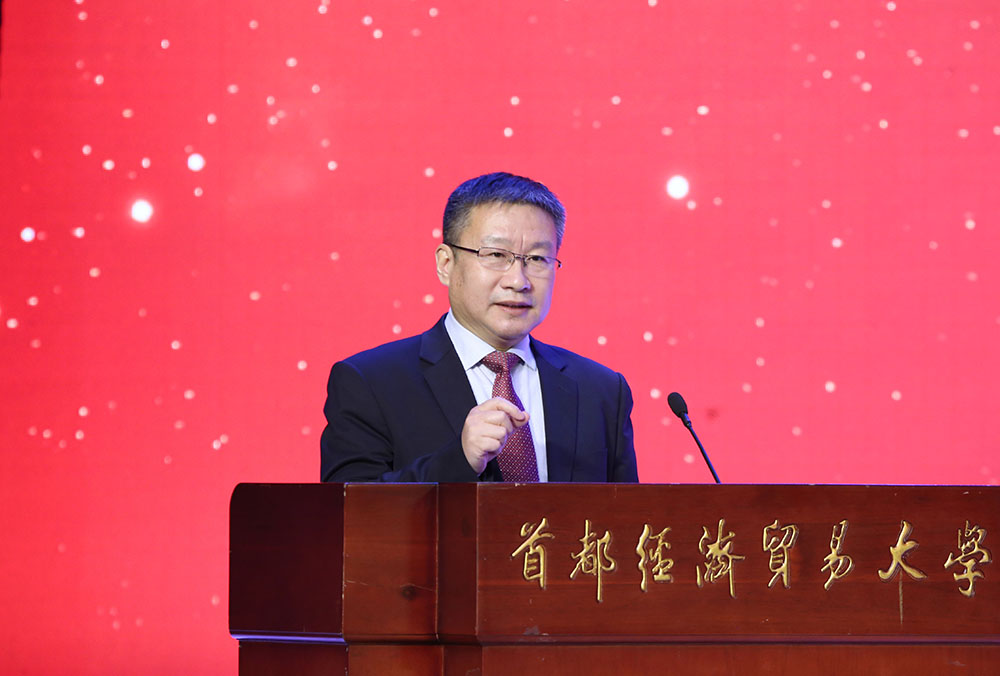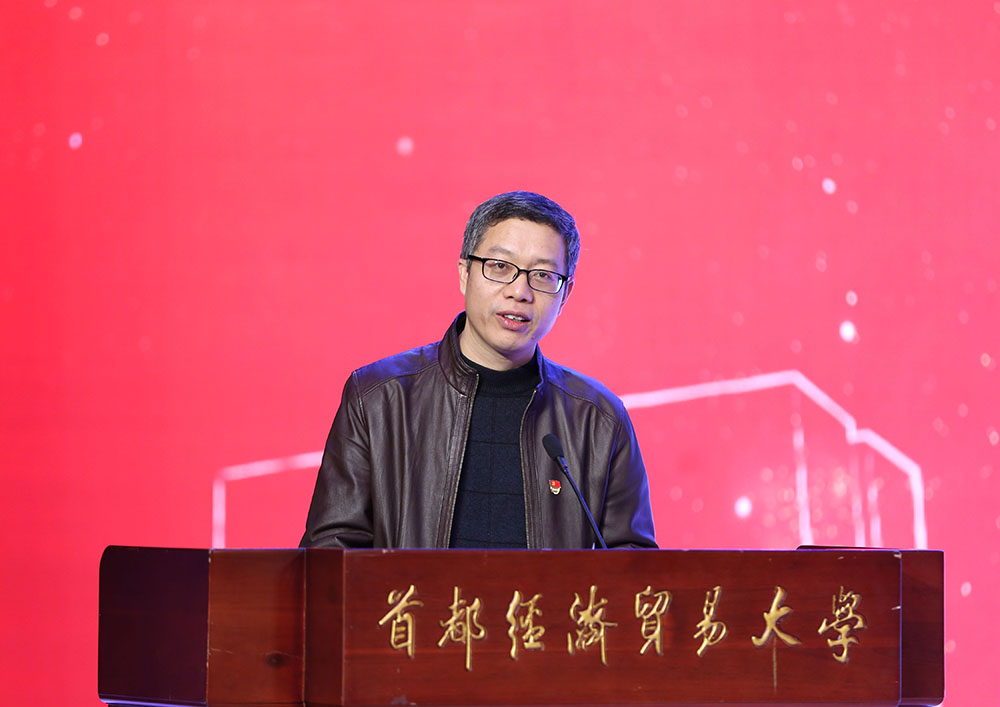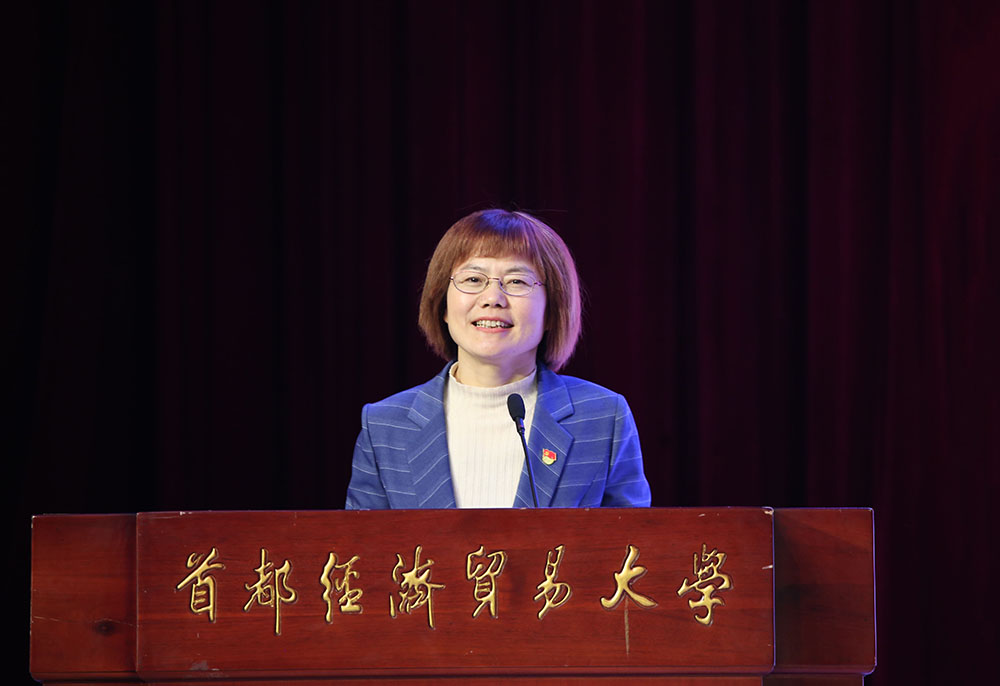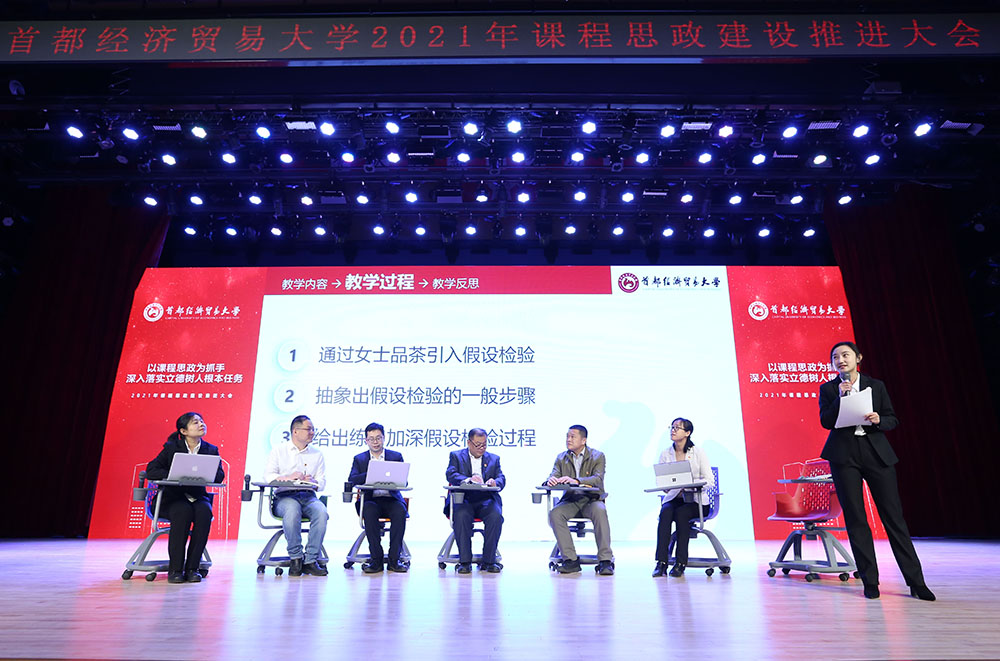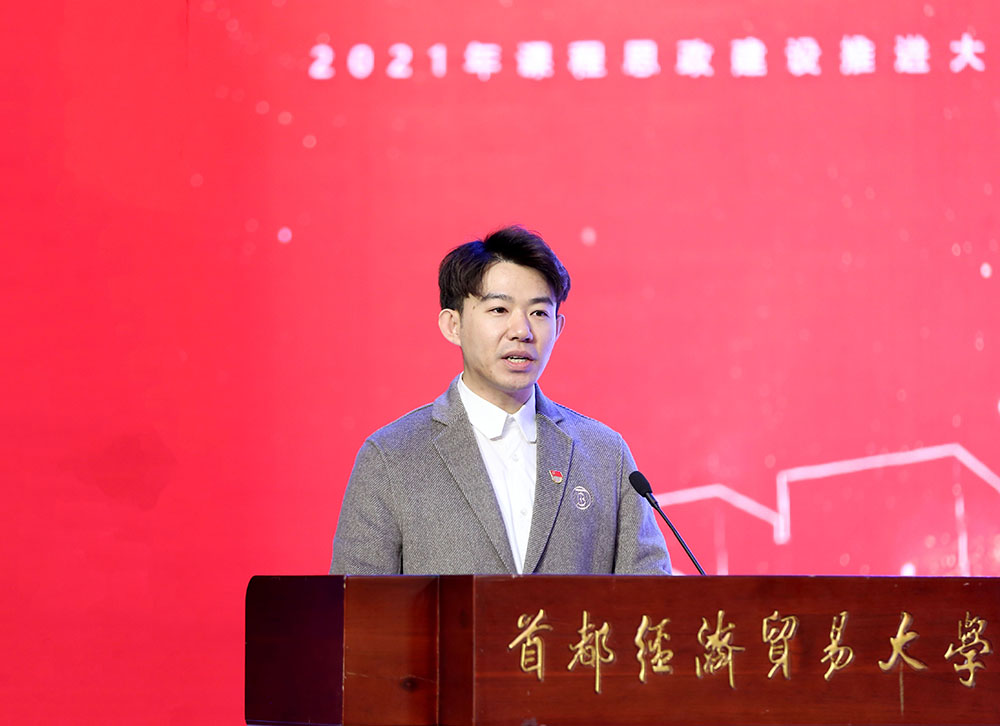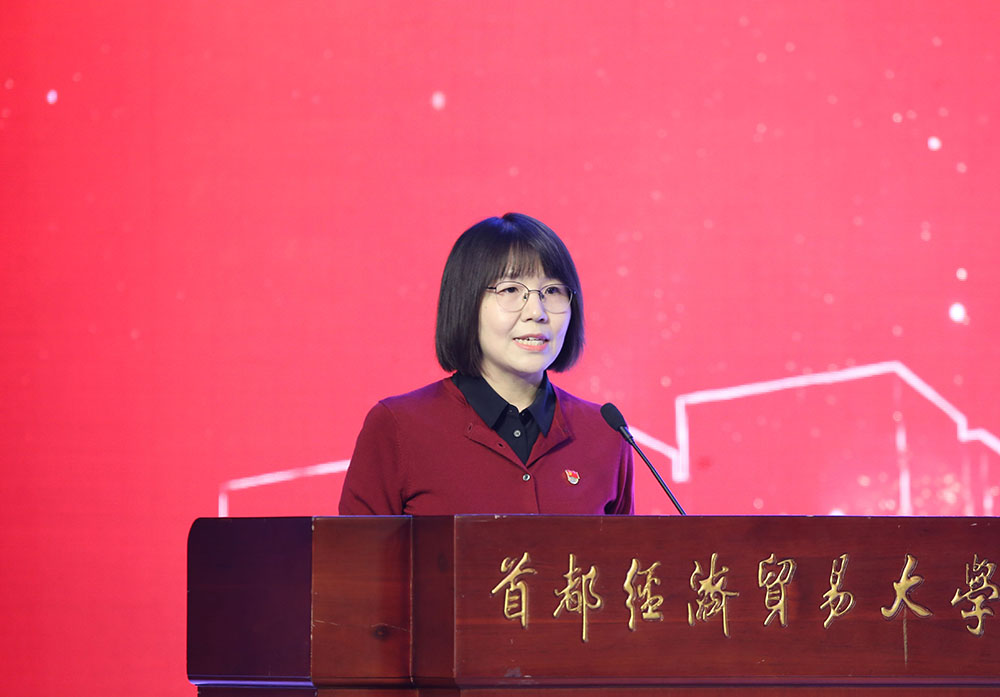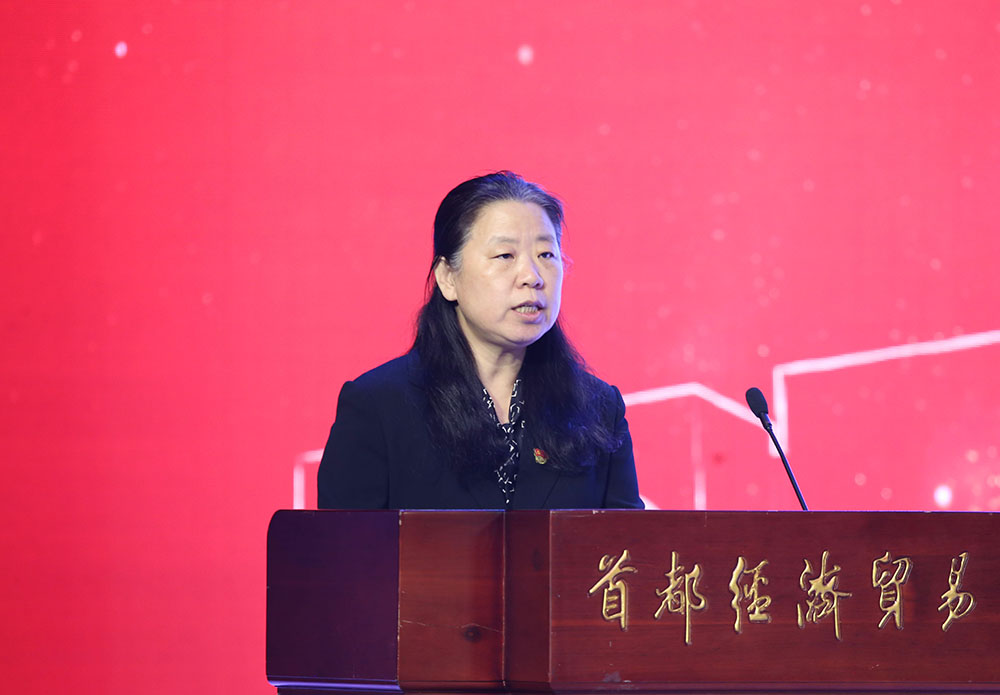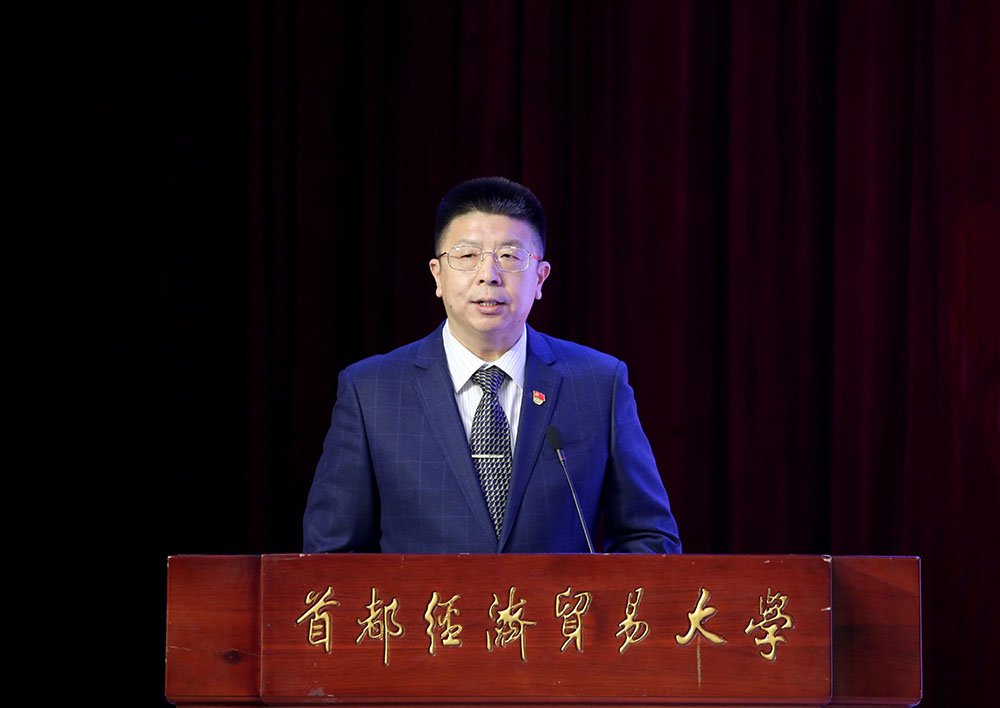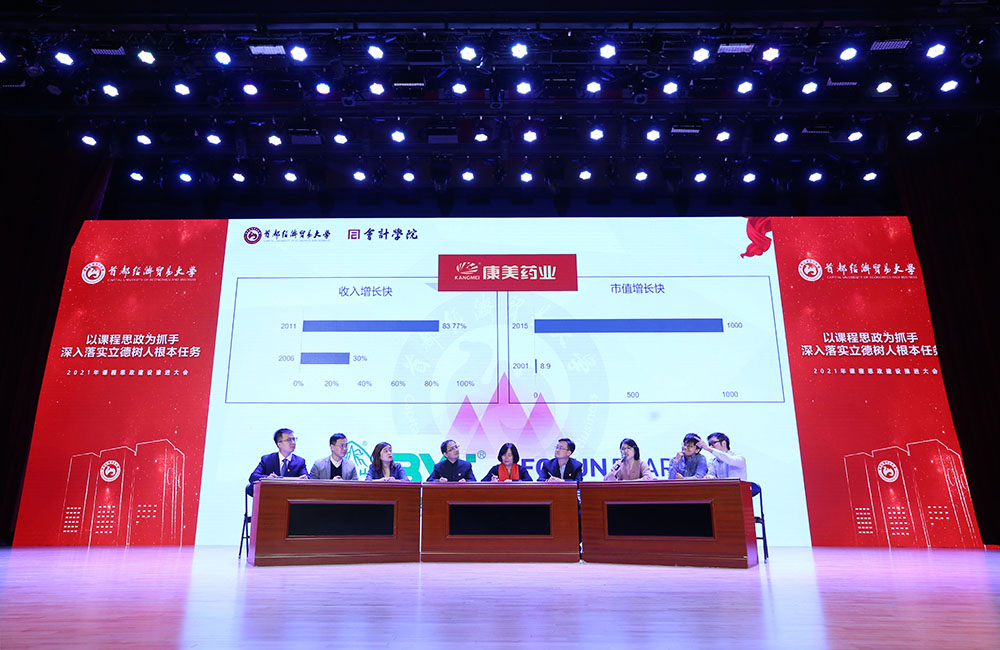CUEBers Demonstrate Ideological and Political Innovation Results at the Fifth Anniversary of the National College Ideological and Political Conference
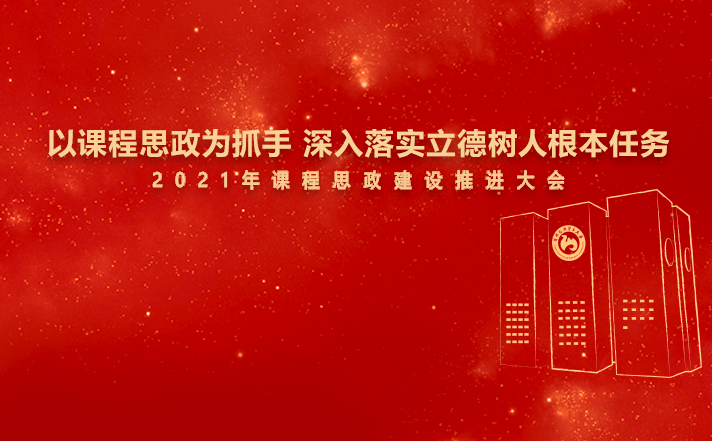
“Fostering virtue through education guides all teachers, advancing in waves, to firmly devote ourselves to this cause. We will always keep our original aspirations in mind!” This is the resolution of the auditing team from the School of Accounting, which was selected as an exceptional team in the national ideological and political demonstration courses and talents cultivating.
On December 7th, 2021, CUEB held a Meeting on Strengthening the Ideological and Political Awareness in Courses with a theme of Further Implementing the Basic Task of Cultivating Students while Fostering their Virtues begins with the Ideological and Political Courses, in line with the fifth anniversary of National Conference on Ideological and Political Work in High Education. In addition, a complete summary of achievements and experience on the construction of ideological and political courses over the past year was made in the meeting, aiming to prepare for better performance and motivate teachers to write down a new chapter in education in the new era.
Li Junfeng, Deputy Secretary of the Beijing Municipal Education Working Committee, Kou Hongjiang, Director of Propaganda and the Education Department of Beijing Municipal Education Working Committee, Zhang Jinghua, Chief of Beijing Bureau of Guangming Daily and Deputy Director of Beijing CPPCC Study Committee, Wang Yu, President and Editor-in-Chief of Modern Education Newspaper, and all school leaders and Party standing committee members attended the meeting. Xu Fang, Deputy Secretary of the Party Committee, presided over the meeting.
The meeting began with a video with the theme of A New Prospect for Ideological and Political Construction in Courses; a New Aspiration for Fostering Virtues through Education, which systematically reviewed the progress made in the courses over the past year, and demonstrated the resolution to firmly keep in mind the original aspiration to actively take responsibility for cultivating students, and the good atmosphere to convey ideological and political ideas in every course and by every teacher.
Li Junfeng pointed out that it’s an important part of implementing the basic task of fostering virtues through education to improve ideological and political courses and ensure other courses to perform their duties. An all-round ideological and political construction system for cultivating talents has been initially established, coming in the form of the Beijing government’s highest standard for building courses, more resources available to ideological and political classes in Beijing’s universities, and a strong synergy between ideological and political classes and many other classes.
Li gave high praise to CUEB’s innovation in ideological and political construction, regarding it as a pacesetter for other universities in Beijing in three aspects. Firstly, it’s a lively implementation of President Xi’s idea on upgrading the ideological and political courses in universities for its high political stance, long-term planning, and pragmatic measures. Secondly, CUEB Party Committee has a strong leadership including the initiation of Party Secretary, coordination of functional departments, proactive promotion of Schools and Departments, active implementation by the faculty and guarantees from branches. Thirdly, CUEB has established a specific research center and held related curriculum-design competitions, which were widely broadcast by authoritative media.
Li hopes that CUEB can seize the opportunity of this meeting to further encourage the faculty to “cultivate talents for the Party and the country” as well as to establish a wide-ranging, multi-type, progressive and mutually-reinforcing system of ideological and political courses. He stressed that firstly, we need to prioritize the “three into” of Xi’s Thought on Socialism with Chinese Characteristics for a new era, which means to incorporate the system of theories of socialism with Chinese characteristics into the curriculum and make it a way of thinking, and we also need to merge the spirit of the 6th Plenary Session of the 19th Central Committee into education, so as to help students absorb nourishment and courage to surge forward from the hundred-year journey of the Party. Secondly, we need to take full consideration of the capital governance to tell well Beijing’s stories, by infusing fresh materials such as “handling affairs immediately once a complaint is received”, “Huitian District Move”, “garbage classification” and “serve Beijing 2022 Winter Olympics” into various subjects through “Broader Ideological and Political Education”, to upgrade the attraction and pathos of ideological and political courses. Thirdly, we need to cultivate students through practice to proactively serve the major national strategy and the construction of four centers as Beijing’s function, including the center of politics, culture, international exchange, and world technological innovation, guiding teachers and students to do research on this topic. Fourthly, we need to fully harness the grass-roots Party organization, especially the teachers’ Party branch, as the fortress in upgrading the ideological and political courses, which means intertwining the grassroots Party building and talent cultivation, making it possible to obtain high-quality development contributed by the process of high-quality party building.
Party Secretary Han Xianzhou said that higher education and institutions of higher learning are characterized with “fostering character and civic virtue to cultivate the builders and successors of socialism with Chinese characteristics” in a new era. Lately, People’s Daily, Xinhua News Agency and other media outlets have published articles to commemorate the 5th anniversary of the National Conference on Ideological and Political work in colleges and universities, encouraging and guiding this conference.
He also said that in the past year, CUEB has learned and implemented Xi’s ideas on education especially “fostering character and civic virtue”, to guide our actions and promote our work. CUEB has accomplished a series of gratifying achievements after studying Xi’s speech at the ceremony marking the centenary of the CPC. Xi’s guiding ideas on “Broader Ideological and Political Education”, and the principles of the sixth Plenary Session of the 19th Central Committee, launching education on Party history and implementing the requirements of the four documents put forward by CUEB.
Han summarized five keys to success in the construction of ideological and political courses and the corresponding achievements. The first is to strengthen top-level design coordinated by the Party and government, and forge a synergy in upgrading the ideological and political course across the campus. The Second is to mobilize widely the faculty to join the construction of ideological and political courses. The third is to enhance the organizational leadership, guarantee the multi-level organizations and departments to take full responsibility. The fourth is to ensure that normative construction is fixed via tailored platforms concerning research, resource, display, promotion, mechanism and assurance. The fifth is to exert colleges’ main function. Over the past year, the construction of ideological and political course has secured four accomplishments. Firstly, our enthusiasm soars unprecedentedly with the universal initiative seen among party members, cadres, and teachers in the construction of ideological and political course. Secondly, the system of “Three-wide Education” has been improved, which means the students’ cultivation involves a wide range of faculty members, covering a wide process and being wide-dimensional, and the pattern of broader Ideological and Political Education is coordinated in related efforts. Thirdly, periodic products are produced in succession and a batch of achievements on education and model teachers in colleges emerged. Fourthly, the overflow effects get strengthened in which the construction has a far-reaching effect on various aspects including upgrading teaching ability, building Party organization of secondary colleges, and strengthening teachers’ ethics.
Han put forward four ground rules in deepening the construction of ideological and political course under the professional ideological and political framework in the future. Firstly, we should not scratch the surface but take full consideration of the essential task of fostering character and civic virtue, high-level talent-cultivation system and mechanism of “Three-wide Education”. Secondly, we should not only regard it as a course but follow the professional design of talent-cultivation and identify its specific criteria. Thirdly, we should not endow too much ideological and political functions on the course, but focus on the course itself. Fourthly, we should not set its basic hallmarks aside but integrate them into the courses naturally.
As for the future construction of ideological and political courses, Han pointed that firstly, we will continue to upgrade our understanding on the course and lead teachers to “be consciously educated first”. Secondly, we will promote a comprehensive construction on professional ideological and political development and highlight the “professional cultivation goal” to advance the construction on professional development and the courses. Thirdly, we will keep on deepening the construction of ideological and political course and ensure that all the courses are involved in the ideological and political construction and all the teachers highlight the cultivation of students. Fourth, we will unleash the potential of “Broader Ideological and Political Education” and integrate the small ideological and political course with the practice in the social sphere. Fifth, we will pay great attention to the overflow effect accompanied and view the course construction as a carrier and an important step in fostering characters and civic virtue. Sixth, we will explore the effective approaches for Party organizations at all levels in CUEB and focus on the “new features for Party building in schools in a new era”.
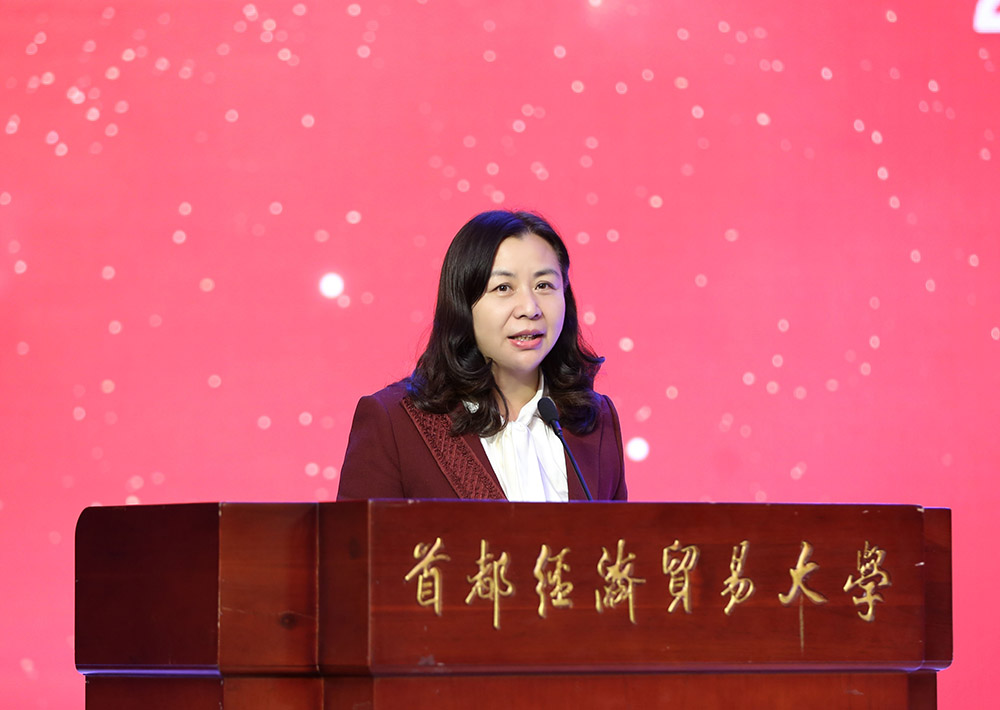
Xu Fang, CUEB Deputy Party Secretary presided over the Conference.
In the exchange and model display part of the conference, Liu Qiang, Director of the Academic Affairs Office, and Mi Xinli, Party Secretary of the School of Law, respectively made two speeches on “deepening the construction of ideological and political courses under the professional ideological and political framework” and “furthering the construction of ideological and political courses in the School of Law and cultivate the new talents giving equal weight to ethics and legal learning for the new era”. In their speech, they shared the effective exploration and practice in the integrated design and implementation of ideological and political courses and professional ideological and political development promoted by the university and the School of Law.
The curriculum group of mathematical statistics in the School of Accounting showed their teaching plan to the conference, themed around “teaching plan sharing and brainstorming”, representing the “three basic techniques” in the ideological and political course. This was titled “hypothetical teaching plan test shows the quiet cultivation of ideological and political course ”.
In the process of constructing ideological and political courses, overflow effect continuously appeared. Zhang Dongyang, Party Secretary of the Economics Department of the School of Economics, and Zhan Jing, Dean of Labor Relations Department of the School of Labor Economics respectively shared the new changes and the momentum the construction of ideological and political course has brought to the teachers’ Party branch and professional ethics, via two speeches themed around “party members are the vanguard of cultivating talents and achievements have been gained in construction of branches” and “educate educators first to be qualified teacher”.
Zhou Yuhong, Dean of the School of Marxism Studies, and Wang Jinbao, Minister of the Student Affairs Department of the Party Committee respectively shared how to build the “Three-wide Education” mechanism through ideological and political courses, daily education, and curriculum via two speeches themed around “keeping in mind the essential task of fostering character and civic virtue and establishing the critical curriculum of cultivating foundations and forging souls” and “integrate the students’ features with targeted daily ideological and political education under the perspective of Broader Ideological and Political Education ”.
The Teaching team auditors of the School of Accounting displayed the Classroom Teaching seminar on ideological and political curriculum, taking “stick to the original aspiration in fostering character and civic virtue” as the theme, and representing their educational idea of passing the original aspiration in the group, which consists of three generations of educators.
Cadres at the level of deputy director, secretaries of the teachers’ Party branch and teacher representatives attended the conference, which was also live streamed through Tencent Meeting, to make sure all faculty, both online and offline, could watch the conference.

